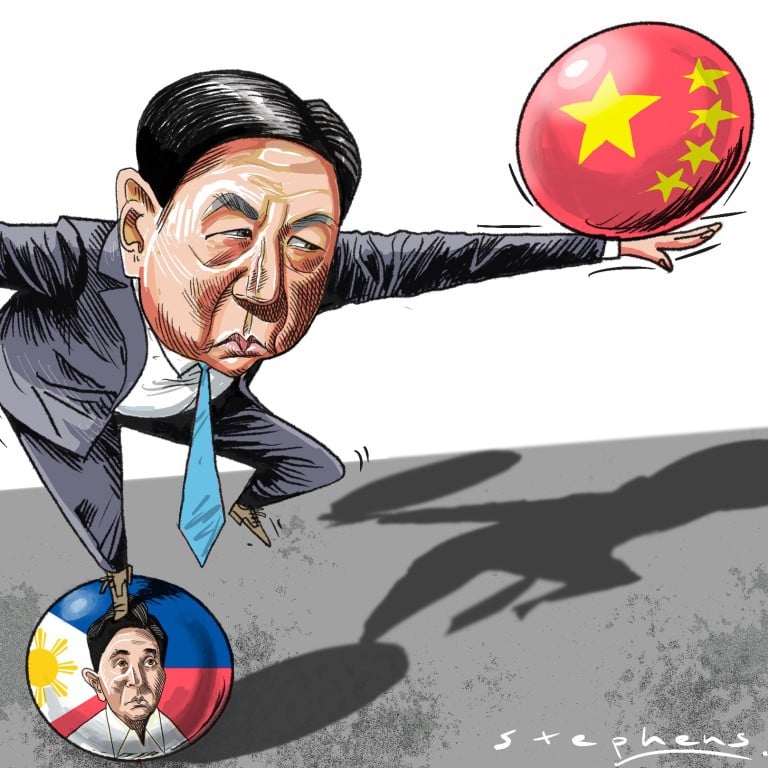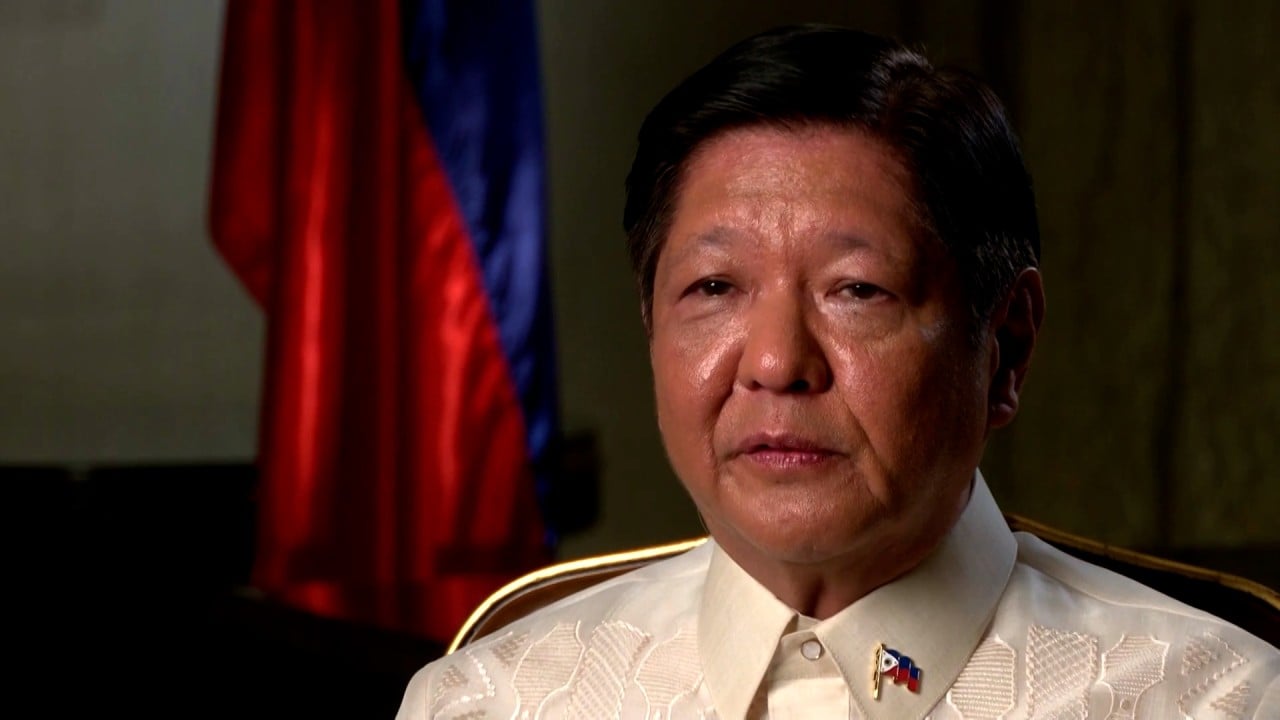
Philippine power struggles add to Marcos Jnr’s tough US-China balancing act
- Marcos Jnr’s pivot towards the US is dividing his coalition government even as the EDCA defence pact with Washington draws Beijing’s ire
- As he embarks on his second year in office, managing China and US defence ties will be doubly crucial
Just days earlier, the Philippines had also hosted a goodwill visit by a People’s Liberation Army Navy contingent. China’s embassy in Manila described the naval visit as a “steady step in [bilateral] defence cooperation” vital to “implementing the important consensus” between both countries’ leaders. Recently, top Chinese diplomat Wang Yi said China was ready to start a “new golden era” with the Philippines.
His most consequential move, however, was on the foreign policy front. An authoritative survey released earlier this year showed that more than 80 per cent of Filipinos wanted the country to develop stronger ties with traditional allies to protect its South China Sea interests. Another survey, published soon after Marcos Jnr was elected, showed the US, Australia and Japan were Filipinos’ most trusted foreign partners. In contrast, China was largely viewed with mistrust.
To begin with, there is a serious element of domestic politics at play. In recent months, open spats have broken out within the ruling coalition. Former president Gloria Macapagal Arroyo, a congresswoman, was recently demoted. Soon after, Vice-President Sara Duterte resigned from the ruling party in protest.
Aside from internal power struggles, one major area of tension has been what was perceived to be Arroyo’s misgivings about Marcos Jnr’s foreign policy. Both Arroyo and the Dutertes have been chief advocates of warmer ties with Beijing, often keeping Washington at arm’s length.
Externally, Marcos Jnr also faces a major dilemma. Throughout his first year in office, he characterised China as an indispensable development partner, particularly with regard to infrastructure. But his EDCA policy has drawn Beijing’s ire.
It’s unclear what reassurances Marcos Jnr may have secured from the US. But what is clear is that in attempting to rebalance foreign relations, follow popular sentiment and rehabilitate his family’s image, he risks falling into a perilous geopolitical trap with huge domestic political implications.
Managing relations with China and subtly calibrating the EDCA question will be crucial not only to Marcos Jnr’s foreign policy success, but also his political standing at home. It will be a tough balancing act.
Richard Heydarian is a Manila-based academic and author of Asia’s New Battlefield: US, China and the Struggle for Western Pacific, and the forthcoming Duterte’s Rise



